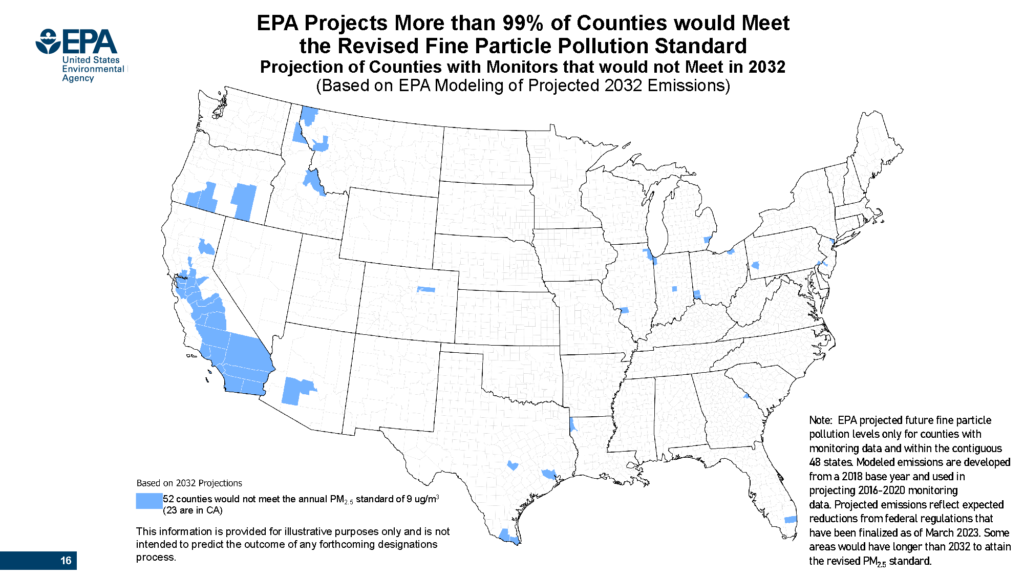
New Air Quality Standard Will Advance Sustainable Business and Environmental Justice in Michigan
February 7, 2024
Today the U.S. Environmental Protection Agency announced a significantly lower standard for fine particle pollution, a move anxiously anticipated by the state’s environmental community that will accelerate efforts to reduce the impacts of air pollution on Michigan’s frontline communities.
According to the EPA, strengthening the annual health-based national ambient air quality standard for fine particulate matter (PM2.5) from a level of 12 micrograms per cubic meter to 9 micrograms per cubic meter will prevent up to 4,500 premature deaths and 290,000 lost workdays, yielding up to $46 billion in net health benefits in 2032. For every $1 spent from this action, there could be as much as $77 in human health benefits in 2032.
Michigan Sustainable Business Forum supported a stronger standard earlier this year as part of its long-standing efforts to collaborate with communities impacted by environmental justice in the state. Air quality has consistently been highlighted as one of the leading concerns of the forum’s community partners, especially particle pollution, also known as soot. It is a driving factor in the MiSBF campaign to reduce heavy-truck traffic in the Roosevelt Park neighborhood of Grand Rapids.
The larger body of science clearly shows that communities of color and socioeconomically disadvantaged communities bear disproportionately higher exposures to PM 2.5 pollution, and despite significant reductions in ambient concentrations over the past 40 years, these communities remain exposed at similarly proportioned higher levels.
“A legacy of redline policies, emergency management, disenfranchisement, systemic racism and economic inequality have created frontline communities that feel the first and worst impacts of pollution,” said Daniel Schoonmaker, executive director of Michigan Sustainable Business Forum. “While we have seen the inconveniences that non-attainment status can sometimes create for local industry, we believe the business community in our state has learned to prioritize environmental justice, and is motivated to address the historical inequities that have been created by air pollution.”
Based on 2020-2022 air monitoring data, EPA estimates that three counties in Michigan would currently be in non-attainment status: Kent, Kalamazoo and Wayne. Due to the existing efforts of local communities and industry leadership, EPA projects that Kent and Kalamazoo counties will meet the standard in advance of 2032, likely the earliest year that states would need to meet the revised standard.

Learn more about the new standard here.
